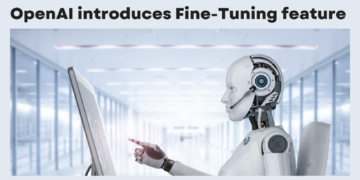The consulting industry, known for its strategic thinking, is undergoing a major transformation. Artificial Intelligence (AI), particularly generative AI, is reshaping how consultancies operate and deliver value to clients. Boston Consulting Group (BCG) is using AI to streamline internal processes, enhance client service, and redefine the role of the consultant. This case study about how BCG is using AI in consulting by Forbes answers the whys, the hows and whats of this development.
Why BCG Prioritizes AI in Consulting
Gone are the days when AI was merely a buzzword. At BCG, AI is a fundamental pillar of their strategy. “It gets into the crux of our business,” says Vlad Lukic, Managing Director and Senior Partner at BCG. AI acts as an extension of the consultant’s expertise, allowing them to work at unprecedented speeds and generate impactful results faster. This frees up valuable time for consultants to focus on higher-level strategic thinking, change management, and driving client adoption of solutions.
How BCG Leverages AI for Impact
BCG’s commitment to AI is evident in the innovative ways they’re integrating the technology across their operations. Here are a few prime examples:
- Streamlining Interview Analysis: Imagine sifting through hours of interview recordings, transcribing conversations, and extracting key insights. Traditionally, this could take weeks. BCG’s enterprise GPT tool tackles this challenge head-on. By automating interview processing and analysis, the tool reduces a two-week process to a matter of days. This frees up consultants to focus on in-depth analysis and candidate selection.
- Introducing Gene: The Versatile Conversational AI: Gene is not your average chatbot. This innovative conversational AI tool engages with clients in a variety of ways. Whether it’s co-hosting podcasts, creating presentations, or participating in live events, Gene showcases the versatility of AI in client communication and content creation.
- Empowering Everyone with Enterprise GPT: Accessibility is a key feature of BCG’s AI strategy. Their enterprise GPT is a game-changer, providing every employee with access to AI functionalities. Consultants can leverage this tool for tasks ranging from document summarization to automating administrative functions. This not only boosts individual productivity but also fosters a culture of innovation within the organization.
The Evolving Consultant
While AI automates routine tasks, the role of the consultant is not being replaced, but rather redefined. Lukic emphasizes the need for consultants to develop “purposeful toil” – the ability to effectively utilize AI tools and verify their outputs. This ensures that consultants remain skilled in critical thinking and analysis while leveraging AI to enhance their efficiency and impact.
Training plays a crucial role in this transformation. BCG equips its consultants with the knowledge and skills necessary to interact effectively with AI tools. This ensures that consultants can provide accurate and reliable insights derived from a combination of human expertise and AI-powered analysis.
The Quantifiable Impact of AI in Consulting
BCG isn’t just deploying AI; they’re measuring its impact. A scientific experiment involving 750 employees revealed compelling results. When tackling straightforward tasks, AI led to a productivity increase of 30-40% for new hires and 20-30% for experienced consultants. However, the study also highlighted the importance of applying AI judiciously. Complex tasks sometimes saw a decrease in productivity due to the challenges of interpreting AI outputs. This underscores the need for human oversight and careful selection of tasks where AI can deliver the most value.
AI for Innovation and Avoiding Pitfalls
BCG’s research delves deeper than just productivity gains. They’ve identified the potential of AI to spark innovation, particularly in creative ideation. Their GenAI experiment showed that around 90% of participants using the tool for creative brainstorming exhibited improved performance.
However, the study also serves as a cautionary tale. When applied to complex problem-solving tasks beyond its current capabilities, GenAI led to misleading outputs and a 23% decline in performance for some participants. This emphasizes the importance of training users to understand the limitations of AI tools and avoid overreliance on them.
To mitigate risks associated with AI, BCG employs several safeguards. Human experts review AI-generated insights, and workflows are designed to ensure continuous oversight. Additionally, BCG continuously fine-tunes their models based on usage and feedback, minimizing the likelihood of errors.
Transparency is paramount when it comes to AI ethics. BCG avoids anthropomorphizing Gene, ensuring users are always aware when interacting with AI. Gene’s voice is intentionally designed to be androgynous and slightly robotic, clearly differentiating it from a human.
The Future of AI in Consulting
Looking ahead, BCG predicts that within a decade, 50% of current consulting tasks will be automated through AI. This doesn’t signify the demise of the consultant; instead, it ushers in a new era of collaboration between humans and AI. Consultants will transition from task executors to strategic advisors, focusing on areas like:
- Change Management: Implementing AI solutions requires effective change management strategies to ensure client adoption and successful integration. Consultants will play a vital role in guiding clients through this process.
- Driving Adoption: Extracting maximum value from AI solutions requires a cultural shift within client organizations. Consultants will be instrumental in driving AI adoption and ensuring employees leverage the technology effectively.
- Deep Expertise & Judgment: While AI excels at data analysis and pattern recognition, human expertise in specific industries and nuanced understanding of client challenges remain irreplaceable. Consultants will continue to provide deep industry knowledge and strategic judgment that AI cannot replicate.
Beyond internal transformation, AI has the potential to revolutionize the way BCG interacts with clients. Conversational interfaces like Gene may evolve into a new standard for client communication and information access. Imagine a future where clients can have real-time conversations with AI assistants, receive personalized insights, and access relevant data on demand. This would fundamentally transform the client experience, offering greater accessibility and a more dynamic level of service.
Lessons Learned for Successful AI Adoption
BCG’s pioneering approach to AI offers valuable insights for organizations considering AI adoption. Here are some key takeaways:
- Start Early, Start Now: Don’t wait for the perfect moment. Begin by identifying areas where AI can add value and build the necessary governance structures to ensure responsible implementation.
- Embrace a Culture of Innovation: Foster a culture that encourages exploration and experimentation with AI tools. This will empower employees to identify new use cases and unlock the full potential of AI.
- Build Internal Capabilities: Outsourcing AI expertise entirely can be a missed opportunity. Invest in developing your own internal AI capabilities to ensure long-term success and a competitive edge.
- Focus on Human-AI Collaboration: View AI as a tool to augment human expertise, not replace it. Train your workforce to leverage AI effectively and focus on tasks where the human touch remains essential.



























